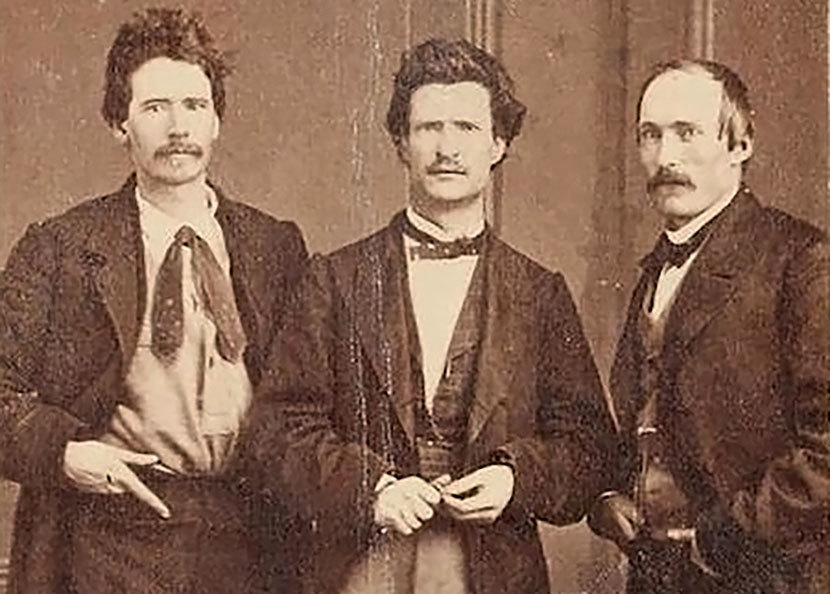Mark Twain (1835–1910)
From Mark Twain: Collected Tales, Sketches, Speeches, & Essays 1852–1890

Samuel Langhorne Clemens was born in Florida, Missouri, 186 years ago, on November 30, 1835.
But “Mark Twain” was born in Virginia City, Nevada, a quarter century later, on February 3, 1863.
Clemens went to Nevada in the summer of 1861 with his older brother Orion, who had been appointed Territorial Secretary. After a few months serving as his brother’s administrative assistant, he decided to prospect for gold with all the other would-be millionaires who had invaded the territory; when that didn’t pan out, he began sending letters to the Daily Territorial Enterprise in Virginia City using the pen name “Josh.” By September 1862 he was on the payroll as a local reporter. “They pay me six dollars a day, and I make 50 per cent profit by only doing three dollars’ worth of work,” he wrote to his sister early the following year.
Clemens traveled to Carson City and sent dispatches to the Enterprise that were published in the February 3, 5, and 8, 1863, issues under “Mark Twain,” his first known use of the name. He achieved notoriety in October with the publication of “A Bloody Massacre Near Carson,” a news article about a man who had killed his family and himself after he lost his money in investments. The story was widely reprinted in newspapers throughout the West. There was one problem: it was a hoax—not a word of it was true, and the clues in the piece that it was a satire on companies who issued “cooked” (false) dividends to jack up their stock prices were too subtle for most readers and, apparently, many editors. Publishers in other cities were so furious that they refused to reprint future stories from the Enterprise. Clemens offered to resign, but his employers assured him that the anger would diminish and the story would be remembered.
One might think that the young reporter would have learned a lesson. But, alas, the following May, the managing editor left town and allowed Clemens to take control of the newspaper. In quick order, he published two articles that resulted in (at least) three challenges to duels. The resulting melee convinced him to leave the city for good—and inspired one of his most famous stories, “How I Escaped Being Killed in a Duel.”
For our Story of the Week selection, we present his much-embellished, much-sanitized version of what happened in Virginia City that May and, in an introduction, we summarize what really happened.



